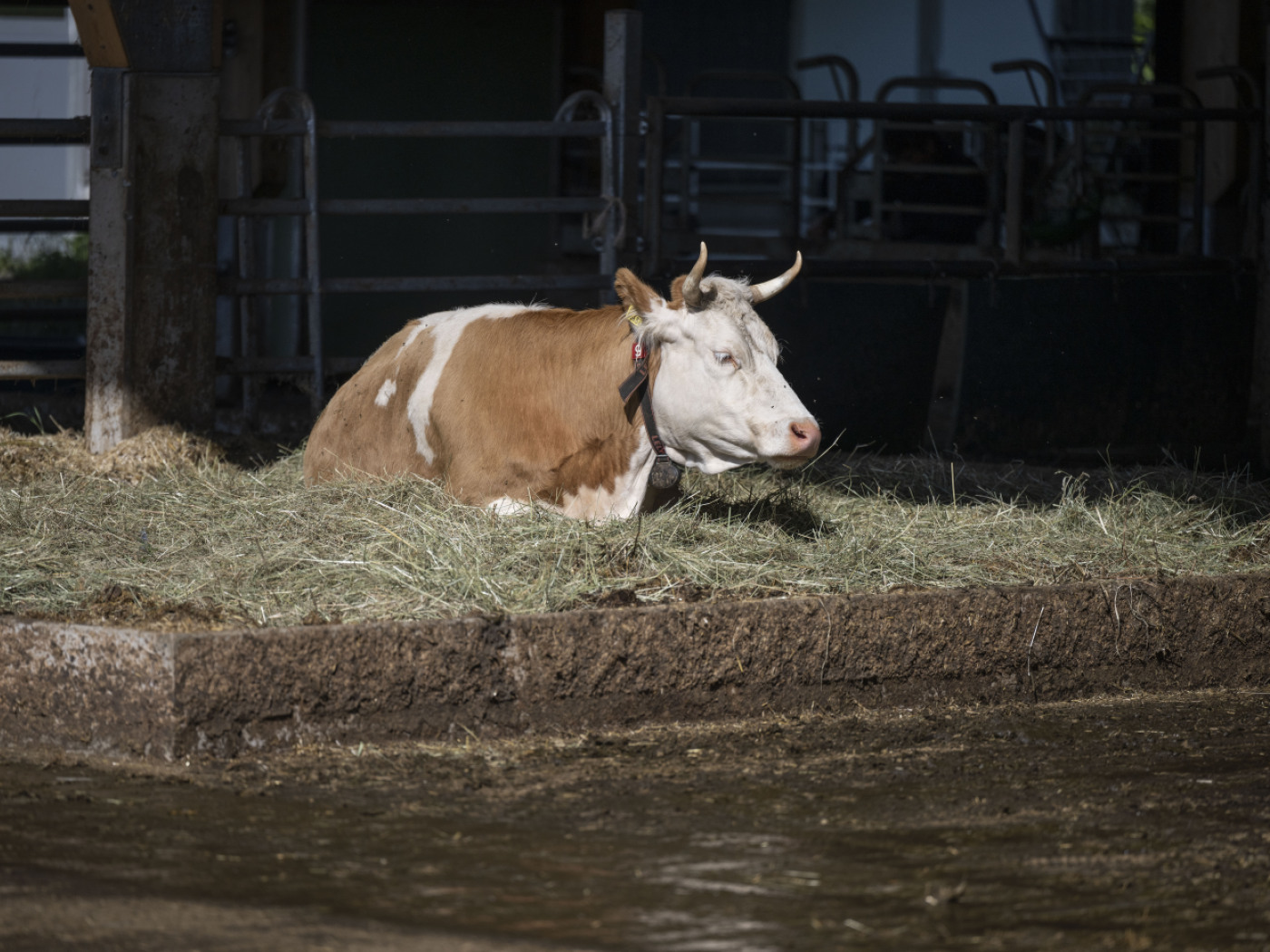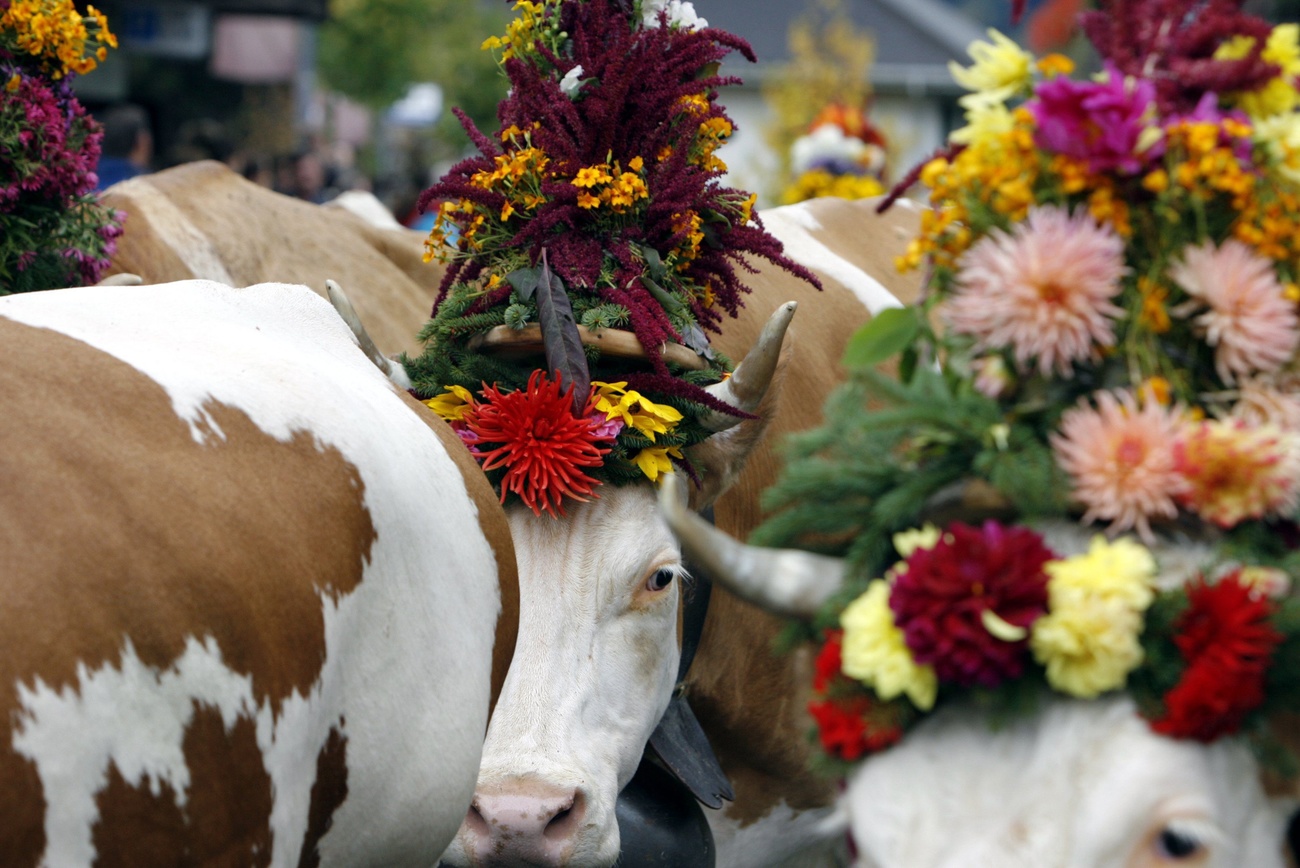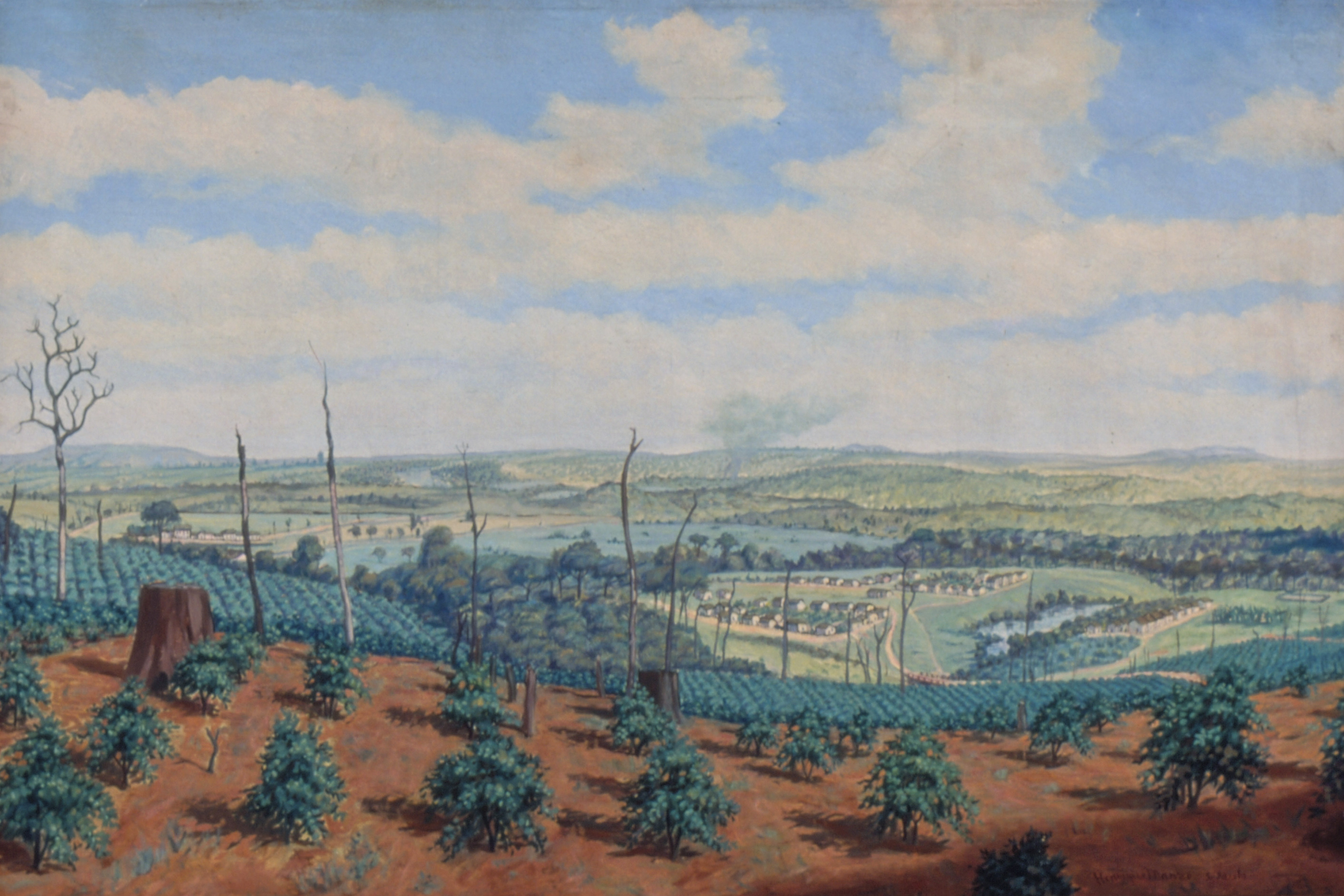
Vaccinations imposed for some Swiss cattle

Cattle in canton Geneva and in the neighbouring region of Terre Sainte in canton Vaud are being vaccinated against the contagious viral skin nodule disease. The first cases of the animal disease were reported at the end of June in France, just outside Geneva.
+Get the most important news from Switzerland in your inbox
On Friday the Federal Food Safety and Veterinary Office (FSVO) announced the mandatory vaccination of all animals susceptible to the virus within the surveillance area defined in Switzerland. With the vaccination, the authorities want to create a buffer zone and prevent the spread of this animal disease, also known as lumpy skin disease.
The FSVO points out that vaccination is the only effective measure to stop the disease and protect the animals in the best possible way.
As no vaccine against the contagious lumpy skin disease has yet been approved in Switzerland, the FSVO issued a general decision on July 11 in consultation with Swissmedic. This authorises the import and use of vaccines that have proven effective in outbreaks of the disease in Europe.
+ Is mad cow disease making a comeback?
The FSVO has also imposed restrictions on the movement of animals and goods in the surveillance zone. Cutaneous nodular disease is mainly transmitted by the bites of horseflies, flies and mosquitoes. Livestock owners are asked to protect their animals as much as possible from these insects.
Lumpy skin disease only affects cattle (cows, buffalo, bison). Goats and sheep are not affected by the disease. Although the mortality rate is generally low, losses due to reduced milk yield, abortions, infertility and reduced leather quality are to be expected.
The disease is harmless to humans. “The consumption of products from infected or vaccinated animals poses no risk to human health”, states the FSVO.

More
The difficult search for real Swiss cows
Translated from German by DeepL/ts
We select the most relevant news for an international audience and use automatic translation tools to translate them into English. A journalist then reviews the translation for clarity and accuracy before publication.
Providing you with automatically translated news gives us the time to write more in-depth articles. The news stories we select have been written and carefully fact-checked by an external editorial team from news agencies such as Bloomberg or Keystone.
If you have any questions about how we work, write to us at english@swissinfo.ch

In compliance with the JTI standards
More: SWI swissinfo.ch certified by the Journalism Trust Initiative






























You can find an overview of ongoing debates with our journalists here . Please join us!
If you want to start a conversation about a topic raised in this article or want to report factual errors, email us at english@swissinfo.ch.